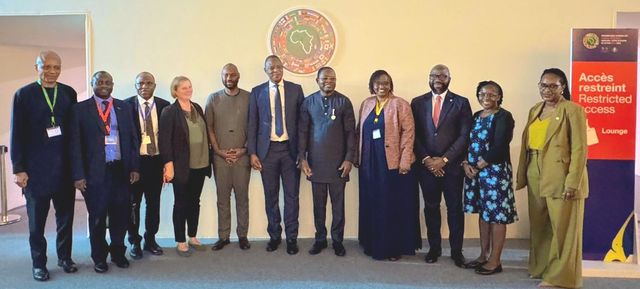Voice AI Startup Acquired: 5 Powerful Facts Behind Meta’s Bold Move
The race for dominance in generative artificial intelligence has intensified, and Meta has just made a bold leap forward. By acquiring Egyptian voice AI startup PlayAI, the tech giant is not only expanding its arsenal but also redefining how intelligent voice interaction will shape future digital experiences. This deal is more than just a financial transaction—it’s a strategic maneuver aimed at reshaping the AI voice ecosystem worldwide. In this article, we explore five powerful facts that reveal the deeper implications behind Meta’s ambitious acquisition.
1. voice AI startup: A Strategic Move in the Global AI Arms Race
Meta’s acquisition of PlayAI is not a coincidence—it’s a calculated response to the growing influence of players like OpenAI and Google. While competitors invest heavily in text-based and visual generative models, Meta is carving out dominance in the audio sphere. By integrating a proven voice AI platform into its ecosystem, Meta sends a clear message: it’s ready to lead not just in social media, but in shaping the interface of the future—your voice.
The acquisition allows Meta to accelerate innovation in wearables, VR environments, and AI-powered assistants. It’s a long-term bet on how humans will interact with machines—more conversational, emotional, and intuitive. In a world increasingly driven by voice commands, this move places Meta at the forefront of the next interface revolution.
2. voice AI startup: Why PlayAI Stood Out Among Dozens
Among the many voice startups emerging globally, PlayAI distinguished itself through cutting-edge technology and a deep understanding of natural speech. Their flagship product, Play Dialog, isn’t just another voice model—it’s a multi-turn, emotion-aware engine capable of simulating complex human conversations. Meta saw in PlayAI not just code, but vision—a future where AI sounds as real as we do.
PlayAI’s team also had credibility. With roots in successful tech ventures and support from renowned incubators like Y Combinator, their growth wasn’t by chance. Meta’s decision to absorb the entire team is a testament to PlayAI’s strong technical culture and the strategic value of its people, not just its product.
3.voice AI startup: The Power of Real-Time Voice at Scale
One of the standout aspects of PlayAI’s platform is its real-time voice generation capabilities. Unlike many bulky voice models, Play 3.0 mini delivers lightning-fast, multilingual, and emotionally nuanced speech output. That’s a game-changer in industries like gaming, education, and customer service—where response time is everything.
Now under Meta’s umbrella, this real-time tech can be scaled globally. Imagine interactive avatars in the metaverse that understand your tone, or voice agents on Instagram that respond to queries instantly. By acquiring PlayAI, Meta didn’t just buy a product—it unlocked a future where AI conversations feel alive.
4. voice AI startup: A Win for Regional Innovation and Global Diversity
The fact that PlayAI was born in Egypt—and not Silicon Valley—marks a pivotal shift in how the world views AI innovation. Meta’s acquisition sends a powerful message: talent and breakthrough ideas can come from anywhere. This move elevates not only the startup itself but also the broader Middle Eastern and African tech ecosystems, validating their place on the global innovation map.
Startups across the Global South are now more visible to international investors and tech giants alike. PlayAI’s journey from Cairo to Menlo Park proves that with vision, funding, and execution, regional players can make a global impact. For Meta, this is also a reputational win—embracing geographic diversity while harnessing world-class technology.
5. voice AI startup: Synergy with Meta’s Metaverse and AI Goals
PlayAI’s real-time speech models are a perfect fit for Meta’s grand vision of the metaverse and AI-driven interaction. Imagine users engaging with digital assistants or avatars that don’t just sound human, but also express empathy, humor, or urgency in real time. This level of emotional realism makes digital environments more immersive and compelling.
Meta has been investing heavily in AI characters, AR glasses, and VR interfaces. Integrating PlayAI’s voice capabilities into these products adds a crucial layer of interaction. It’s not just about understanding commands—it’s about creating relationships. This acquisition could redefine how users communicate in virtual worlds, making speech the new touch.
6. voice AI startup: The Future of Voice AI Is No-Code
One of the most forward-thinking aspects of PlayAI’s platform is its no-code voice agent builder. This tool allows businesses and developers to create intelligent voice applications without needing deep technical knowledge. That democratization of AI puts power in the hands of creators, entrepreneurs, educators, and more.
As Meta integrates this feature into its suite of tools, the potential applications multiply—think custom voice bots for small businesses, localized assistants for global markets, and educational content with dynamic narration. In an era where access matters, no-code voice tech could be the bridge between advanced AI and real-world utility.
To explore more on AI democratization trends, see this Forbes analysis on no-code AI evolution.
7. voice AI startup: The Impact on Egypt’s Tech Ecosystem
The PlayAI acquisition represents a significant turning point for Egypt’s technology ecosystem. Startups in the region have long sought validation on a global scale, and this deal places Egypt on the map for cutting-edge AI innovation. It sends a powerful message to international investors: North Africa is capable of producing globally competitive tech. Furthermore, Meta’s acquisition demonstrates a growing appetite for African-based solutions that are tailored for diverse, multilingual markets.
PlayAI’s achievements—particularly its emotion-aware voice agents—have highlighted the depth of local engineering talent. This success could inspire a wave of venture capital interest in Cairo-based startups. Universities, incubators, and accelerators are also likely to invest more in speech AI and machine learning fields. In a region often overlooked in global tech headlines, the PlayAI acquisition stands as a rare and hopeful beacon.
8. voice AI startup: Competitive Implications for OpenAI and Google
Meta’s strategic PlayAI acquisition raises the stakes in its race against OpenAI and Google. Each of these giants is vying to dominate generative AI, and PlayAI’s technology gives Meta a unique advantage in the voice space. While OpenAI has focused heavily on ChatGPT’s textual intelligence, and Google continues to refine Bard and Gemini, Meta now has access to agents that can emulate human conversation and tone with remarkable precision.
This shift could push competitors to re-evaluate their voice strategies. Expect an acceleration in the development of emotionally responsive agents and more native integration of AI into consumer devices. Meta may even leapfrog ahead in multilingual support—a domain where PlayAI’s models shine. For users, this means more natural, nuanced, and inclusive voice interactions across platforms. In the broader sense, the PlayAI acquisition is a shot across the bow in the battle for AI dominance.
9. AI for Content Creation and Digital Journalism
One exciting avenue Meta may explore post-PlayAI acquisition is integrating AI voice agents into digital media and journalism tools. PlayAI’s voice technology can convert written articles into realistic, expressive audio—a powerful tool for content accessibility and reach. This is especially relevant for news platforms looking to expand to new audiences via voice channels or podcasts.
In fact, many digital publishers in emerging markets are already exploring AI to automate tasks like voice narration, headline generation, and translation. The combination of PlayAI’s multilingual synthesis and Meta’s distribution platforms opens massive potential. News sites such as Mauritius Biz Monitor’s report on AI trends in journalism highlight this growing trend in the region.
As generative voice becomes part of the journalism toolkit, creators will be empowered to produce immersive, inclusive content. The PlayAI acquisition thus aligns with a broader global movement—democratizing content creation using AI.
10. Industry Reactions and What Lies Ahead
The tech industry has taken notice of Meta’s bold move. Analysts believe that the PlayAI acquired by Meta deal could influence how companies approach voice AI integration. Competitors may accelerate acquisitions of their own or double down on in-house R&D to keep pace. This acquisition is not just about voice synthesis; it’s about building emotionally intelligent interfaces that anticipate user needs and respond appropriately. As highlighted in this recent article on Mauritius Biz Monitor, the future of human-tech interaction depends heavily on adaptive, personalized AI — something this deal pushes into the mainstream.
Conclusion: A Bold Leap Toward the Future of AI
Meta’s acquisition of PlayAI signals a transformative shift in how we perceive and interact with artificial intelligence. No longer just functional, AI is becoming conversational, empathetic, and even predictive. With this strategic move, Meta is not only positioning itself as a leader in AI innovation but also setting a new standard for digital communication. As the implications unfold, one thing is certain: PlayAI acquired by Meta is more than a headline — it’s a turning point in tech history.




